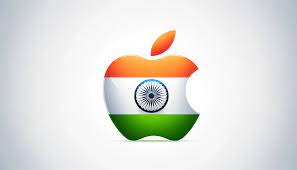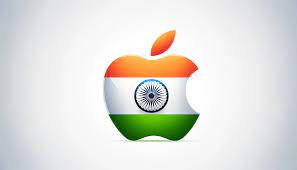
According to a government document, Apple has warned India that if New Delhi follows the European Union and mandates that all current iPhones have universal charging ports, its local production targets will be missed. This comes as the American tech giant is attempting to delay or obtain an exemption, according to a Reuters story.
India is in talks with manufacturers to introduce the requirement in India by June 2025, six months after the EU deadline, in order to comply with a rule proposed by the EU requiring smartphones to include a universal USB-C charging connector. Apple is resisting, despite the fact that every manufacturer, including Samsung, has accepted India's proposal.
Apple has been providing its iPhones with a special lightning connector port for years. However, the EU calculates that a single charging solution will save customers almost $271 million, while India claims the initiative will benefit users and lessen e-waste.
According to meeting minutes seen by Reuters, on Nov. 28, Apple requested that current iPhone models be exempted from the regulations in a closed-door meeting presided over by India's IT ministry. The company expressed concern that, in the absence of this, it would be difficult to meet production targets established under the country's production-linked incentive (PLI) scheme.
Prime Minister Narendra Modi's flagship initiative, PLI, provides Indian electronic firms with tax breaks in exchange for new investments and annual growth in phone sales.
It has been widely utilised by Foxconn and other Apple suppliers to increase iPhone production in the nation.
"If the regulation is implemented on earlier models of mobile phones, they (Apple) will not be able to meet the PLI targets," the minutes quoted Apple's regulatory and product compliance executives as saying while opposing the rules.
According to two people familiar with the proceedings, Apple did not quantify the production impact in the meeting, and the IT ministry chose to examine its proposal and make a judgement at a later time.
Apple, whose lobbying activities in India are being made public for the first time, and the Indian IT ministry did not respond to requests for comment from Reuters.
After China, India is considered Apple's next growing market.
According to renowned Apple analyst Ming-Chi Kuo, 12–14% of iPhones produced in 2023 will come from India; that percentage could reach 25% the following year.
Apple now has 6% of the rapidly expanding smartphone market in India, up from only over 2% four years ago.
According to Counterpoint Research, Apple suppliers have grown and now produce the majority of the iPhone 12, 13, 14, and 15 models in India for both domestic and international markets.
There is a new universal charging port on the iPhone 15, alone. According to the document, Apple informed Indian authorities at the conference that "the design of the earlier products cannot be changed."
According to Prabhu Ram, head of CyberMedia Research's Industry Intelligence Group, India's drive for a single charger for earlier generations of iPhones could help Apple meet its targets. Indian consumers are price careful and prefer to purchase older models of iPhones, which normally become cheaper with new launches.
"Apple's fortunes in India have primarily been tied to older generation iPhones," he said.
India plans to comply with the EU's charging port regulations by June 2025, and they go into effect in December 2024.
Apple informed regulators that if current models are exempt from the regulations, it can meet that deadline; if not, it will require an additional 18 months beyond 2024.
"A natural transition period should be given ... keeping in mind the product design timelines," the minutes quoted Apple executives as telling government officials.
(Source:www.reuters.com)
India is in talks with manufacturers to introduce the requirement in India by June 2025, six months after the EU deadline, in order to comply with a rule proposed by the EU requiring smartphones to include a universal USB-C charging connector. Apple is resisting, despite the fact that every manufacturer, including Samsung, has accepted India's proposal.
Apple has been providing its iPhones with a special lightning connector port for years. However, the EU calculates that a single charging solution will save customers almost $271 million, while India claims the initiative will benefit users and lessen e-waste.
According to meeting minutes seen by Reuters, on Nov. 28, Apple requested that current iPhone models be exempted from the regulations in a closed-door meeting presided over by India's IT ministry. The company expressed concern that, in the absence of this, it would be difficult to meet production targets established under the country's production-linked incentive (PLI) scheme.
Prime Minister Narendra Modi's flagship initiative, PLI, provides Indian electronic firms with tax breaks in exchange for new investments and annual growth in phone sales.
It has been widely utilised by Foxconn and other Apple suppliers to increase iPhone production in the nation.
"If the regulation is implemented on earlier models of mobile phones, they (Apple) will not be able to meet the PLI targets," the minutes quoted Apple's regulatory and product compliance executives as saying while opposing the rules.
According to two people familiar with the proceedings, Apple did not quantify the production impact in the meeting, and the IT ministry chose to examine its proposal and make a judgement at a later time.
Apple, whose lobbying activities in India are being made public for the first time, and the Indian IT ministry did not respond to requests for comment from Reuters.
After China, India is considered Apple's next growing market.
According to renowned Apple analyst Ming-Chi Kuo, 12–14% of iPhones produced in 2023 will come from India; that percentage could reach 25% the following year.
Apple now has 6% of the rapidly expanding smartphone market in India, up from only over 2% four years ago.
According to Counterpoint Research, Apple suppliers have grown and now produce the majority of the iPhone 12, 13, 14, and 15 models in India for both domestic and international markets.
There is a new universal charging port on the iPhone 15, alone. According to the document, Apple informed Indian authorities at the conference that "the design of the earlier products cannot be changed."
According to Prabhu Ram, head of CyberMedia Research's Industry Intelligence Group, India's drive for a single charger for earlier generations of iPhones could help Apple meet its targets. Indian consumers are price careful and prefer to purchase older models of iPhones, which normally become cheaper with new launches.
"Apple's fortunes in India have primarily been tied to older generation iPhones," he said.
India plans to comply with the EU's charging port regulations by June 2025, and they go into effect in December 2024.
Apple informed regulators that if current models are exempt from the regulations, it can meet that deadline; if not, it will require an additional 18 months beyond 2024.
"A natural transition period should be given ... keeping in mind the product design timelines," the minutes quoted Apple executives as telling government officials.
(Source:www.reuters.com)














